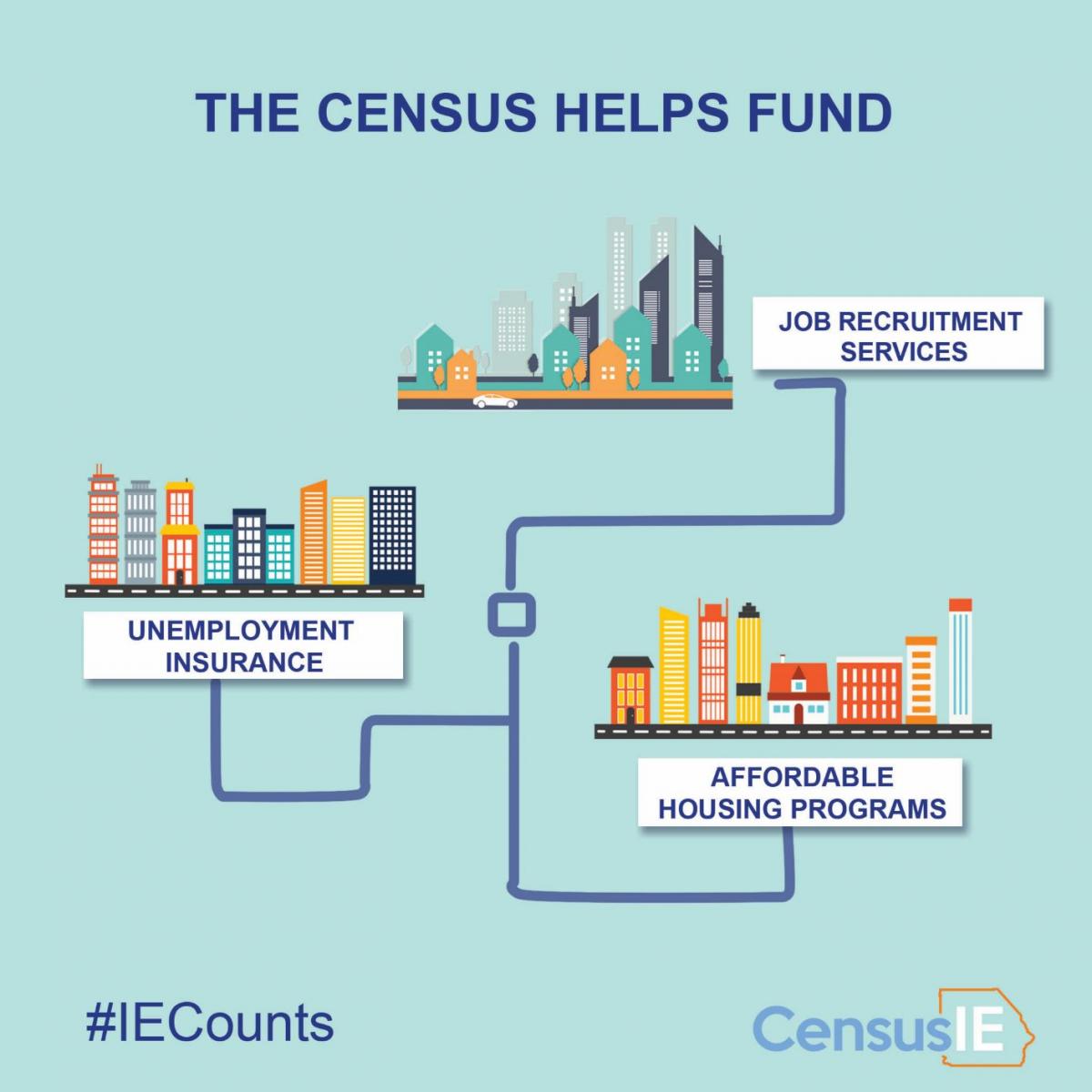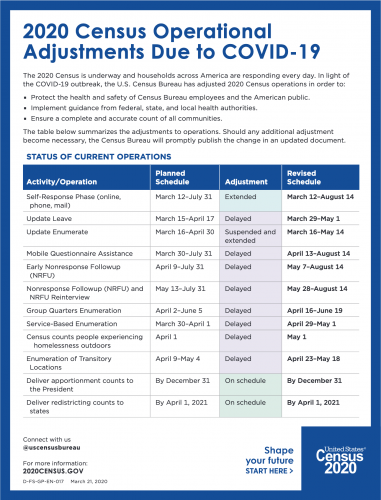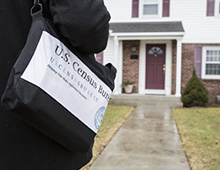Census 2020 is Here
Published: 5/22/2020
CENSUS 2020
HERE’S WHAT YOU NEED TO KNOW
DEADLINE EXTENDED TO OCT 15
What is the Census
The 2020 Census is a count of every person living in the United States and its territories. Through a national survey, census bureau collects critical data that affects your representation in government, determines how much funding your community receives, and provides data to help you plan for the future.
As a Census 2020 partner, the City of Riverside is committed to providing you with the latest information available. Public services or programs are funded based on population-data derived from Census counts. Ensuring every group in Riverside is properly counted in the 2020 Census means ensuring that these programs and services are set up to properly serve our community.
Frequently Asked Questions
Representation
It is critically important to count every person in the United States so that the government can ensure all residents get proper representation. Census counts determine how many Congressmembers each state gets in the House of Representatives and congressional, state senate, and state assembly district lines are drawn based on the amount of people in any given area.
Federal Funding
Census data determines how more than $675 billion of the federal budget gets spent across the nation every year. In California specifically, a third of our state budget comes from the federal government to pay for programs like Medi-Cal, public education, housing infrastructure and housing assistance programs.
Data
Most of the population-driven data and research we have about our country comes from the Census. It is critically important to have accurate data so that government, businesses, schools, nonprofit organizations, etc can properly analyze the landscape of our country.
- Communities of Color – Latinx, Black and African Americans, Native Americans and tribal communities, Asian Americans and Pacific Islanders, and Middle Eastern and North Africans
- Immigrants and Refugees
- Farm-workers
- People with Disabilities
- LGBTQ identifying folks
- Seniors/Older Adults
- Children 0-5
- Homeless individuals and families
- Veterans
- Areas with low/no broadband subscriptions
- Households with limited English proficiency
- Public schools
- Public Transportation
- Highway infrastructure
- Medical programs like Medi-Cal or the Children’s Health Insurance Program
- Unemployment Insurance and recruitment services
- Affordable Housing Programs
- Prison reentry programs
How Do I Respond If...
Foreign students attending school in the US should count themselves at their on or off-campus residence. On the flip side, American students studying internationally should not be counted as they are not currently living in the country.
Please note that this information is used only for statistical and funding purposes. None of this information will be shared with landlords, law enforcement, immigration agencies, or the IRS.
2020 Census Self-Response by State
The Census is Critical For Riverside Businesses

The Inland Empire is home to over 4 million people and the City of Riverside is one of the fastest growing cities in Riverside County. So why should local businesses worry about the 2020 census? Simple: under-representation hurts the economy. It is estimated our region lost 1 billion dollars over the last ten years because of undercounting during the 2010 census. That’s 1 billion dollars lost in public and private investment vital to a competitive economy. This inequity meant less funding for public health, schools, small businesses, non-profits, transportation, and infrastructure. The undercounting also deprived our region of critical private investment opportunities as lenders, realtors, and businesses used less reliable data to make decisions about Inland Southern California.
Why is this important to my business?
- Businesses use census data for targeting customers, opening and expanding their operations. Their customers and suppliers rely on census data as well.
- Federal, state and local governments rely on the census to set strategies for economic growth and funding. Up to $1.5 trillion is dispersed to local and state jurisdictions based on census data.
- Census population data guides government representation, determining the voice of the Inland Region in state policy that affects our economy.
- In times of crisis, accurate census data helps emergency preparedness by determining proper allocation of critical supplies, deployment of first responders, high quality medical facilities, and a ready healthcare workforce.
The impact of the current census will be a major factor in defining the economy of the Inland Empire through 2030. All businesses have a key role to play by encouraging customers, employees and the general public to complete their census questionnaires. Your trusted voice can have a great impact.
6 Ways Your Business Can Support the Census
- Educate your employees: host a workshop with your company’s leaders, employees, and influential partners to encourage participation
- Share the message: use posters, fliers, social media, messages on receipts or shipping containers; post information, videos and a link to the official 2020 Census web page on your company website
- Get creative: offer incentives for employees and promotions for customers that encourage participation while marketing your business
- Share information: support your municipalities campaigns for participation Contribute: financially or by volunteering with local and state-based efforts
- Join the National Business Network for an Accurate Census: it’s free, virtual and private
- Become a U.S. Census Bureau Partner: The U.S. Census Bureau provides an array of free support and materials to help companies and business membership organizations encourage their employees, customers and the general public to complete their census questionnaires.
There is not a better time than now to come together and be counted. Without an accurate census, the Inland Empire could face 10 more years of inequity: stunting our potential with underfunding and under-representation. The collective strength of our workforce, businesses, entrepreneurs and our student population deserves an accurate census. For more ways your business can make a difference, check out the Council for a Strong America:Business Counts.
Everyone Counts
No matter where you’re from, your nationality, your immigration status, or who you live with, for the 2020 Census, everyone counts.
Adjustments Due to COVID-19
The 2020 Census is underway - more than half the households across America have responded - and more are responding every day. Online, phone and mailed self-responses will continue throughout the data collection process. Responding now will minimize the need for the Census Bureau to send census takers out into communities to follow up.
In light of the COVID-19 outbreak, the U.S. Census Bureau has adjusted 2020 Census operations in order to:
- Protect the health and safety of the American public and Census Bureau employees.
- Implement guidance from Federal, State, and local authorities regarding COVID-19.
- Ensure a complete and accurate count of all communities.



